|
A person I tremendously admire off-handedly once told me, "All of the work I did that made the biggest difference in my life was work I did while other people slept."
Extra effort is what made the difference in his career. Instead of sleeping in, he started working, and it made the big difference in his success. Summer's similar. Twenty years ago, a colleague once told me "If I don't finish a summer project by the Fourth of July, it's probably not going to get finished." He went on to say that too much gets in the way after the Fourth of July: Family vacations, long weekends off, projects around the home, kid stuff, outdoor BBQs, and so on. Ever since hearing this, the Fourth of July high water mark has always been an inspiration for me to really turn on the gas for the rest of the summer so I can say I got as much done after the 4th as before. Benchmarks can be good. Especially if you think that what you do past the benchmark might be what makes the biggest difference for you.
0 Comments
On a late afternoon about 20 years ago, I stepped into a slow elevator with my college’s most productive, famous, and taciturn senior professor. After 10 seconds of silence, I asked, “Did you publish anything yet today?” He stared at me for about 4 seconds and said, “The day’s not over.” Cool . . . very Clint Eastwood-like.
Most of us have some super-productive days and we have some bad days, but most lie in-between. If we could figure out what leads to great days, we might be able to trigger more of them in our life. For instance, if you want to write a whole lot, there might be a way to set up your day so that this happens with a surprising amount of ease. Think of the most recent “great day” you had. What made it great, and how did it start? For about 20 years, every time somebody told me they had a great day, I’d ask “What made it great? How did it start out? About 50% of the time its greatness had to do with an external “good news” event like something great happening at work, great news from their kids or spouse, a nice surprise, or nice call or email from a grateful person or an old friend. The other 50% of the time, the reason for “greatness” was more “internal.” They had a super productive day, they finished a project or a bunch of errands, or they had a breakthrough solution to a problem or something they should do. External successes are easy to celebrate with our friends. Internal successes are more unpredictable. What made today a great day and what sabotaged yesterday? When people had great days, one reoccurring feature was that they started off great. There was no delay between when they got out of bed and when they Unleashed the Greatness. People said things like, “I just got started and seemed to get everything done,” or “I finished up this one thing and then just kept going.” One of the most productive authors I've known said that got up six days a week at 6:30 and wrote from 7:00 to 9:00 without interruption. Then he kissed his wife good-bye and drove into school and worked there. When I asked how long he had done that he said, “Forever.” About a year ago, I started toying with the idea that "Your first two hours set the tone for the whole day." Think of your last mediocre day. Did it start out mediocre? That would also be consistent with this notion. We can’t trigger every day to be great, but maybe we have more control than we think. If we focus on making our first two hours great, it might set the tone for the rest of the day. What we need to decide is what we can we do in those first two hours after waking that would trigger an amazing day and what would sabotage it and make it mediocre. For me, it seems writing, exercise, prayer, or meditation are the good triggers, and it seems answering emails, reading the news, or surfing are the saboteurs. Here’s to you having lots of amazing days. One’s where you can channel your best Clint Eastwood impression and say, “The day’s not over.” |
Welcome...Tips for PhDs is a how-to community that helps us share our best practices as PhD students, new professors, and independent scholars.
Helpful tools and tips on how to graduate, get tenure, teach better, publish more, and have a super rewarding career.
Relevant Posts
All
Some Older PostsArchives
April 2024
|
Share Your Insights and IdeasWhat have you created or found that's been useful and could be helpful for other PhD students, new professors, or independent scholars?
Send an email to [email protected] if you have something you think would be useful to share with others on this website, or if you have ideas on how to make this more useful to you or your students. |
Stay in touch |
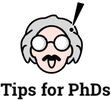
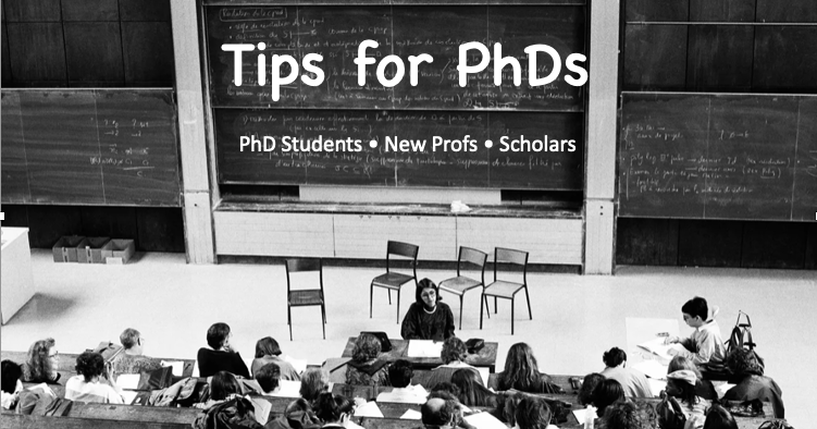

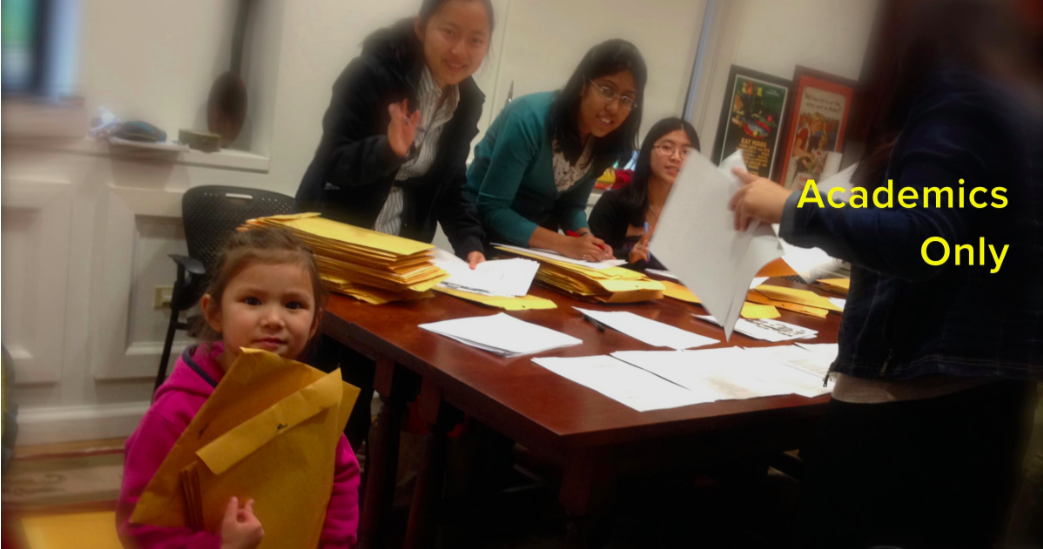
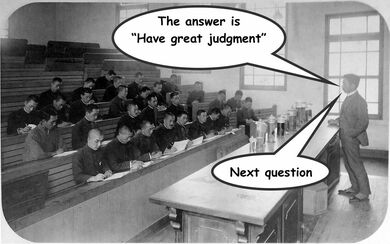
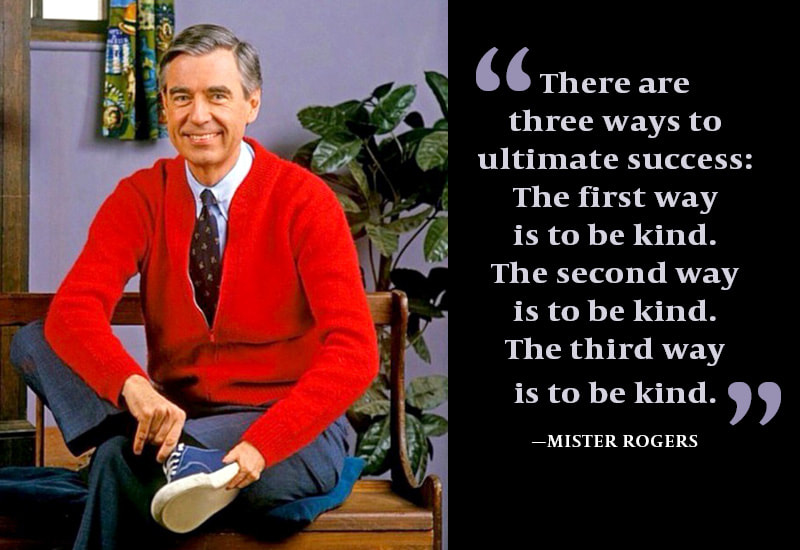
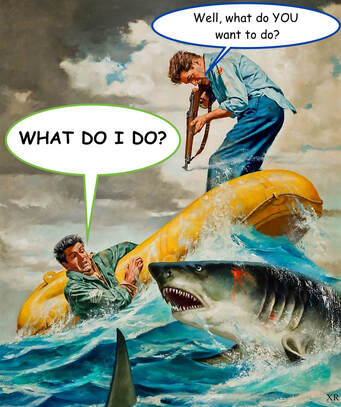
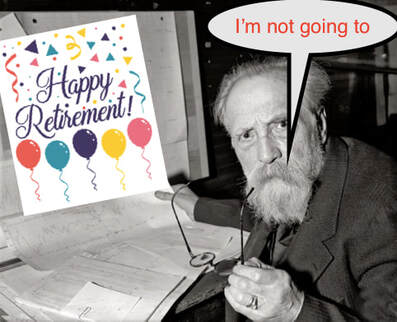
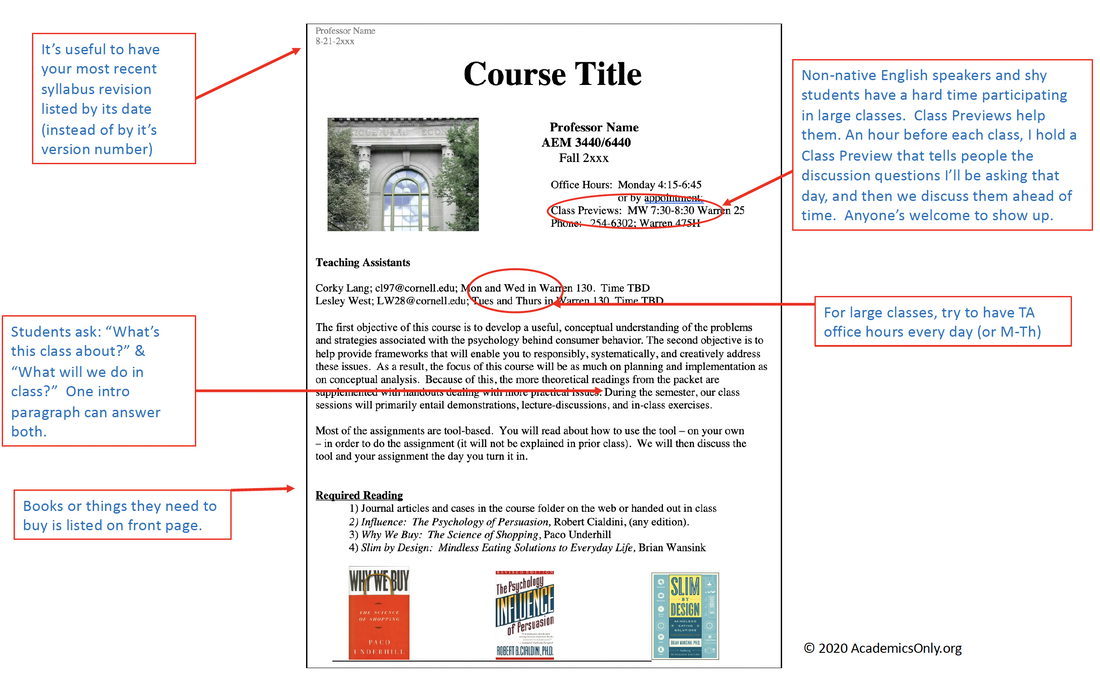

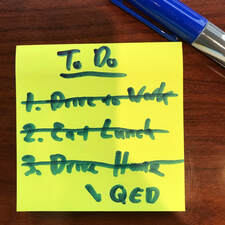

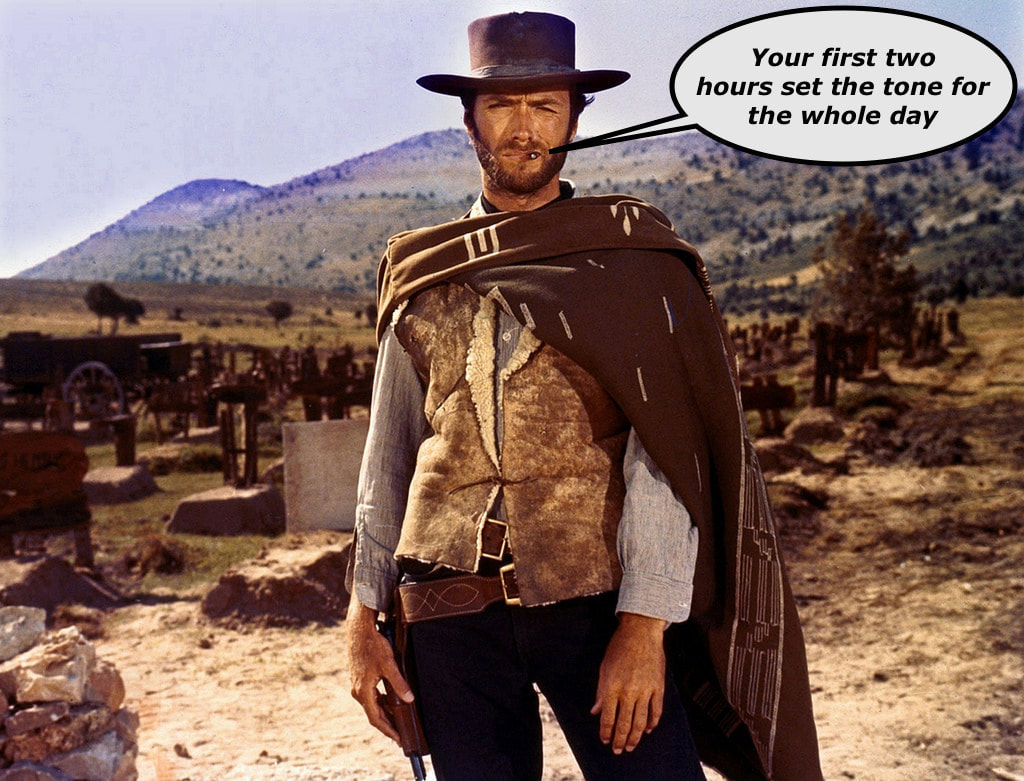
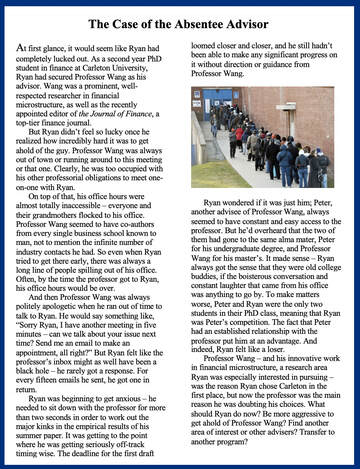
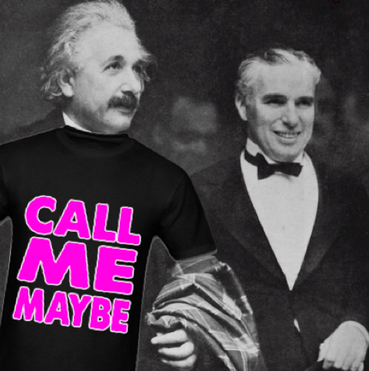
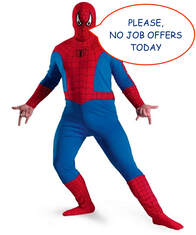

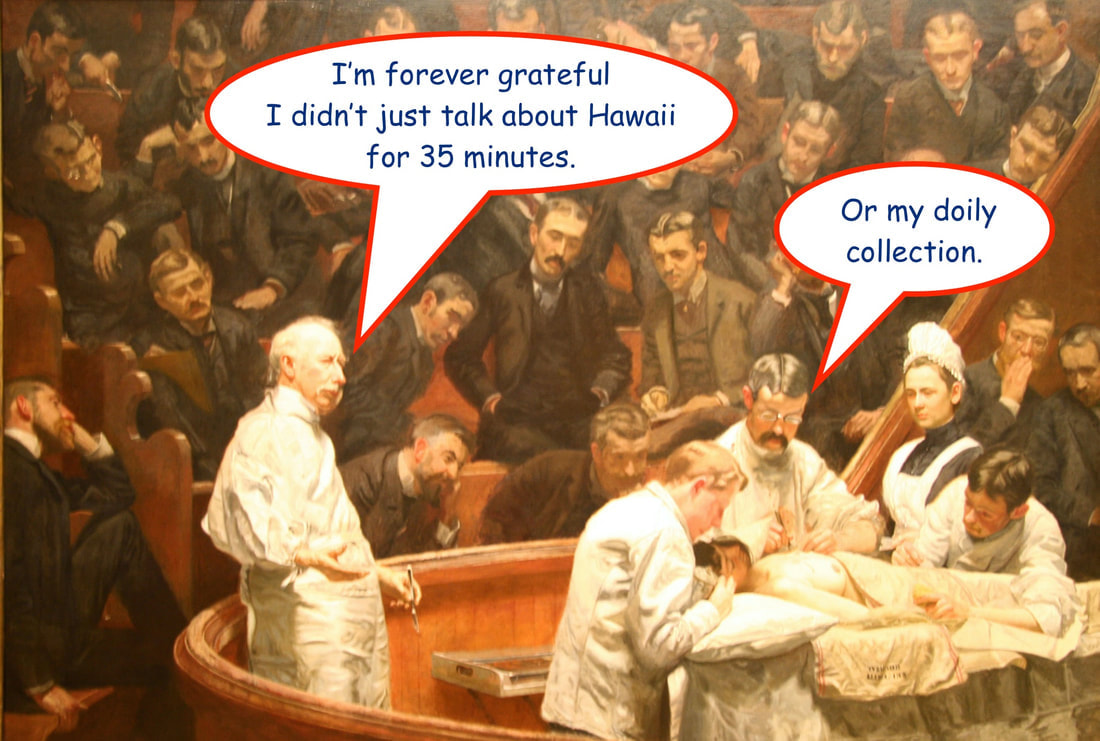
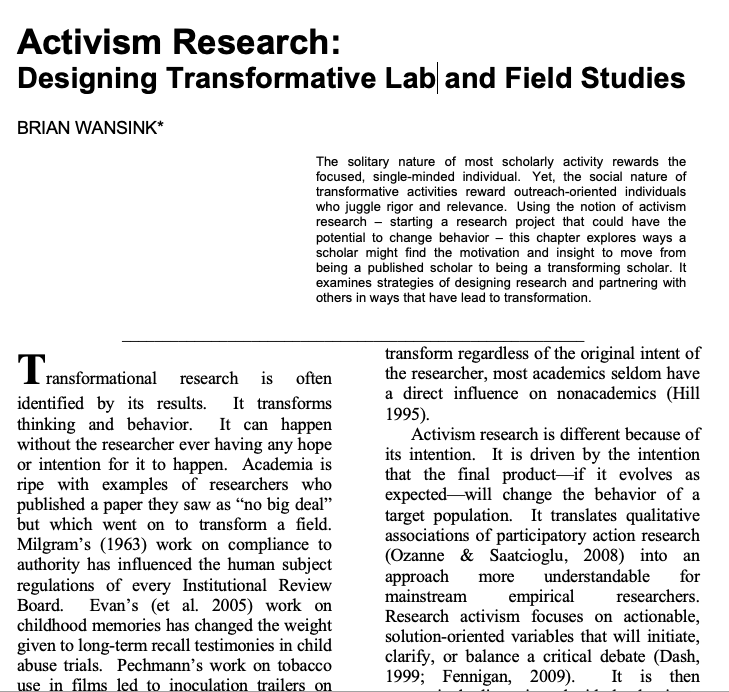
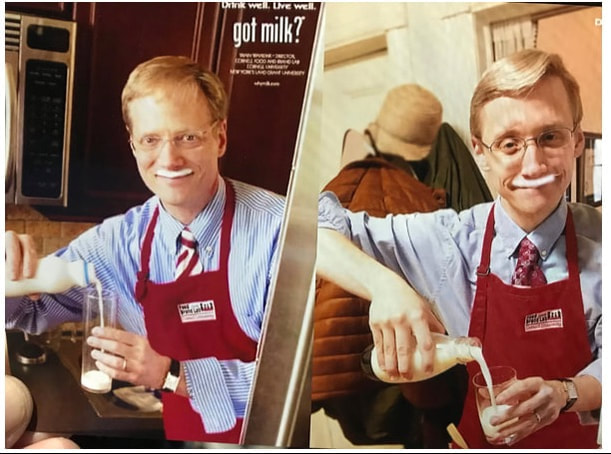
 RSS Feed
RSS Feed